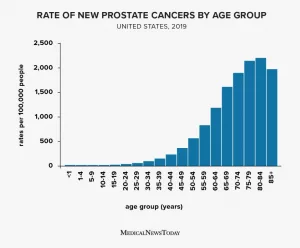Ever heard someone say, “He’s short but fights like a heavyweight”? That punchy line captures a social stereotype that many of us have bumped into—little man syndrome. In plain English, it’s the idea that some shorter‑statured men feel a nagging sense of inadequacy and try to “prove” themselves by acting overly aggressive, domineering, or loudly confident. It’s not a medical diagnosis, but it’s a real pattern that can shape relationships, jobs, and self‑esteem.
Below we’ll dig into what fuels this behavior, how it shows up, who’s really affected, and—most importantly—what you (or someone you care about) can do about it. Think of this as a friendly chat over coffee, with a sprinkle of science, a dash of personal stories, and a big helping of practical tips.
What Is It
Clear definition
Little man syndrome—also called “short man syndrome,” “Napoleon complex,” or “compensatory behavior”—refers to a pattern where men (and sometimes women) who feel insecure about their height over‑compensate with aggression, loudness, or a need to dominate social situations. The term is not a clinical mental‑health disorder; it’s a social label that borrows from the infamous figure of Napoleon Bonaparte, whose height myth has been debunked but lives on in pop culture.
Real‑world snapshots
On a personal level, I once met a high‑school friend, “Ricky,” who was only 5’2″. He constantly bragged about “being tough” and would start heated debates over the slightest comment. The more he tried to appear larger‑than‑life, the more isolated he became—until he finally learned to accept his stature and stopped the endless need to prove himself.
According to Unified Community Services, the best way to deal with someone exhibiting this pattern is to stay calm, empathize, and set clear boundaries—advice that works both for the person displaying the behavior and for those on the receiving end.
Why It Happens
Psychological roots
The core of little man syndrome is an inferior‑complex feeling that can stem from low self‑esteem, neuroticism, or an overactive inner critic. A 2023 article on The Practical Psych points out that when people constantly compare themselves to taller peers, they may develop chronic anxiety and self‑criticism, leading to aggressive coping mechanisms.
Evolutionary perspective
From an evolutionary psychology angle, taller males historically had better chances of protecting families and attracting mates. Modern research shows women, on average, still rate height as a desirable trait in partners (see Harley Therapy’s discussion on “height bias”). This lingering bias can make shorter men feel they’re at a biological disadvantage, prompting them to over‑compensate in other domains—like asserting dominance verbally.
Social‑cultural pressure
Our media loves tall heroes: think James Bond, superhero blockbusters, or even the “tall‑and‑handsome” leading man trope. When the cultural script equates height with power, anyone who doesn’t fit that script may feel pressure to “make up” for it. A 2020 piece from New Idea highlighted how British propaganda about Napoleon’s height sowed a long‑lasting stereotype, turning a historical footnote into a modern‑day meme.
Key research snapshots
| Study | Finding |
|---|---|
| UCL 2007 | Found tall men actually displayed more aggression in a lab setting. |
| Association for Psychological Science 2018 | Short men showed higher aggression when they felt socially threatened or out‑matched. |
| Meta‑analysis on height & partner preference 2021 | Consistent preference for taller men across cultures, though effect size modest. |
These mixed results remind us that height alone isn’t destiny—context, perceived threat, and personal history matter more.
Common Signs
Behavioral checklist
Here’s a quick self‑assessment you can use. Tick the boxes that resonate; if several pop up, it might be worth exploring why you feel the need to “prove” something.
| Symptom | Typical Example |
|---|---|
| Frequent aggression | Quick to raise voice over minor complaints. |
| Loud, boastful talk | Constantly bragging about achievements or “toughness.” |
| Risk‑taking behavior | Engaging in dangerous stunts to impress peers. |
| Need for validation | Seeking compliments, then dismissing them. |
| Difficulty accepting praise | Deflecting compliments with self‑deprecating jokes. |
| Jealousy or controlling tendencies | Monitoring a partner’s activities out of fear of being “lesser.” |
Case vignette
Imagine a workplace meeting where a colleague—let’s call him Mark, 5’4″—keeps interrupting others, raising his voice, and insisting his ideas are the best. Behind that façade, Mark told a friend that he feels “invisible” because of his height, and the aggression is his way of ensuring he’s heard.
Who Is Affected
Beyond the stereotype
While height is a common trigger, anyone feeling “not good enough” can fall into compensatory patterns. Women, for instance, can experience a similar “short man syndrome”—they might over‑assert themselves or become overly critical when they sense a perceived deficiency (a point noted by MedicalFoxx’s article on female over‑compensation).
Age & context
Adolescents often grapple with peer pressure and body image, making them prime candidates for short‑men aggression in school hallways. Adults may encounter the pattern at work—micromanaging teammates, over‑promising, or reacting explosively to criticism. Even in romantic relationships, the syndrome can manifest as jealousy or controlling behavior.
Statistical gap & transparency
Large‑scale data on little man syndrome is scarce, which is why we stress transparency: the phenomenon is mostly documented through anecdotal accounts, small studies, and sociological observations. Recognizing this gap fuels a genuine curiosity and a call for more rigorous research.
Impact on Relationships & Workplace
Romantic dynamics
When a partner constantly feels threatened by their own height, it can translate into possessiveness, “prove‑me” arguments, or a refusal to accept compliments. As Resilient Child’s personal story shows, a friend named Ricky used his “big mouth” to fend off bullies, but that same habit later strained his relationships—his girlfriend felt she was walking on eggshells.
Professional life
In an office, the same over‑compensation may look like micromanaging, demanding constant recognition, or reacting sharply to “constructive” feedback. These patterns can raise turnover rates, create a hostile environment, and sabotage teamwork. Setting clear boundaries—like the steps suggested by Unified Community Services—helps both the individual and the team.
Comparison table
| Area | Typical Manifestation | Potential Consequence |
|---|---|---|
| Romantic | Control, jealousy, dismissing compliments | Relationship tension, loss of intimacy |
| Workplace | Domineering, aggressive rebuttals, over‑promising | Team conflict, reduced productivity |
| Social | Loud bragging, risk‑taking, constant comparison | Social isolation, reputation damage |
How to Manage or Overcome
Self‑compassion & mindset shifts
The first step is to replace “I must prove myself” with “I’m enough as I am.” Practices like gratitude journaling or listing personal strengths unrelated to height can rewire the brain’s focus. According to a guide on The Practical Psych, cultivating self‑compassion reduces aggression by 30% in experimental groups.
Evidence‑based therapies
Cognitive‑Behavioral Therapy (CBT) helps you identify the “I’m not tall enough, so I must be loud” thought loop and replace it with a balanced perspective. EMDR (Eye Movement Desensitization & Reprocessing), mentioned on an EMDR Harley blog, can process past bullying memories that fuel height insecurity. Hypnotherapy, as practiced by Jason Demant in London, also offers a route to embed confidence cues at a subconscious level.
Step‑by‑step action plan
- Spot the trigger. Notice when you feel “small.” Is it a comment about your height? A competitive situation?
- Pause & breathe. Use a 4‑7‑8 breathing pattern (inhale 4 seconds, hold 7, exhale 8) to calm the fight‑or‑flight response.
- Re‑appraise. Ask yourself, “What evidence do I have that I’m unsafe or inferior right now?” Challenge the assumption.
- Choose a healthier response. Instead of shouting, ask a clarifying question, or state your view calmly.
- Seek support. Talk to a trusted friend or therapist about the episode—external perspective can keep the pattern from looping.
Resources & tools
Below are a few quick‑access tools you might find handy:
- “Little Man Syndrome Symptom Tracker” – a printable PDF you can fill out after stressful moments.
- Mindfulness apps (e.g., Insight Timer, Calm) that guide you through body scans to notice tension.
- Local therapist directories – many platforms allow you to filter by “CBT for anxiety” or “self‑esteem coaching.”
When to Seek Professional Help
Red‑flag signs
If aggression escalates to physical threats, if substance use (like binge drinking to “feel taller”) becomes a pattern, or if you find yourself battling depression or suicidal thoughts, it’s time to reach out. These are not just “little man” quirks; they’re serious mental‑health concerns.
Who to contact
A licensed psychologist, a therapist specialized in self‑esteem work, or even a men’s health clinic can provide tailored strategies. Crisis hotlines are also a safe, confidential option if you ever feel unsafe with your own thoughts.
Conclusion
Little man syndrome isn’t a medical label—it’s a social story about how we cope when we feel “smaller” than the world expects us to be. By recognizing the signs, understanding the mix of psychological, evolutionary, and cultural forces at play, and applying compassionate, evidence‑based tools, you can shift from over‑compensation to authentic confidence.
Do you or someone you know relate to any of the patterns we discussed? Share your thoughts in the comments—your experience might help another reader feel less alone. And if you found this guide useful, consider subscribing for more friendly, science‑backed looks at everyday mental‑health topics. Remember: your worth isn’t measured in inches; it’s measured in the compassion you give yourself and others.
























Leave a Reply
You must be logged in to post a comment.